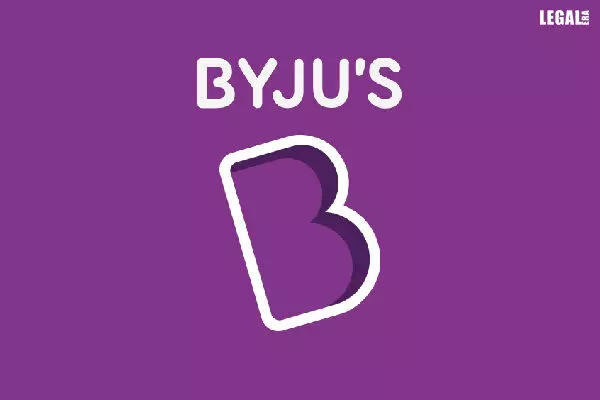- Home
- News
- Articles+
- Aerospace
- AI
- Agriculture
- Alternate Dispute Resolution
- Arbitration & Mediation
- Banking and Finance
- Bankruptcy
- Book Review
- Bribery & Corruption
- Commercial Litigation
- Competition Law
- Conference Reports
- Consumer Products
- Contract
- Corporate Governance
- Corporate Law
- Covid-19
- Cryptocurrency
- Cybersecurity
- Data Protection
- Defence
- Digital Economy
- E-commerce
- Employment Law
- Energy and Natural Resources
- Entertainment and Sports Law
- Environmental Law
- ESG
- FDI
- Food and Beverage
- Gaming
- Health Care
- IBC Diaries
- In Focus
- Inclusion & Diversity
- Insurance Law
- Intellectual Property
- International Law
- IP & Tech Era
- Know the Law
- Labour Laws
- Law & Policy and Regulation
- Litigation
- Litigation Funding
- Manufacturing
- Mergers & Acquisitions
- NFTs
- Privacy
- Private Equity
- Project Finance
- Real Estate
- Risk and Compliance
- Student Corner
- Take On Board
- Tax
- Technology Media and Telecom
- Tributes
- Viewpoint
- Zoom In
- Law Firms
- In-House
- Rankings
- E-Magazine
- Legal Era TV
- Events
- News
- Articles
- Aerospace
- AI
- Agriculture
- Alternate Dispute Resolution
- Arbitration & Mediation
- Banking and Finance
- Bankruptcy
- Book Review
- Bribery & Corruption
- Commercial Litigation
- Competition Law
- Conference Reports
- Consumer Products
- Contract
- Corporate Governance
- Corporate Law
- Covid-19
- Cryptocurrency
- Cybersecurity
- Data Protection
- Defence
- Digital Economy
- E-commerce
- Employment Law
- Energy and Natural Resources
- Entertainment and Sports Law
- Environmental Law
- ESG
- FDI
- Food and Beverage
- Gaming
- Health Care
- IBC Diaries
- In Focus
- Inclusion & Diversity
- Insurance Law
- Intellectual Property
- International Law
- IP & Tech Era
- Know the Law
- Labour Laws
- Law & Policy and Regulation
- Litigation
- Litigation Funding
- Manufacturing
- Mergers & Acquisitions
- NFTs
- Privacy
- Private Equity
- Project Finance
- Real Estate
- Risk and Compliance
- Student Corner
- Take On Board
- Tax
- Technology Media and Telecom
- Tributes
- Viewpoint
- Zoom In
- Law Firms
- In-House
- Rankings
- E-Magazine
- Legal Era TV
- Events
NCLT Halts Byju's Second Rights Issue Over Mismanagement Claims

NCLT Halts Byju's Second Rights Issue Over Mismanagement Claims
The National Company Law Tribunal (NCLT) has ordered Byju's to maintain its current shareholding structure, effectively pausing the company’s contentious second rights issue. This interim directive was issued by a special bench comprising Judicial Member M.S.S. Sundaram and Technical Member Manoj Kumar Dubey. The ruling came in response to a petition filed by a group of investors alleging oppression and mismanagement by the company.
Byju's, under the leadership of founder Byju Raveendran, had planned a $200 million rights issue, split into two tranches due to initial funding shortfalls. The first rights issue failed to secure the necessary funds, prompting the company to initiate a second rights issue on May 13, 2024. However, this second tranche met strong opposition from a consortium of investors, including MIH EdTech Investments (a subsidiary of Prosus NV), General Atlantic Singapore, Peak XV Partners, and Sofina. These investors accused Byju's of breaching previous commitments made to the NCLT and alleged various acts of mismanagement.
The National Company Law Tribunal (NCLT) has issued an interim order restraining Byju's from proceeding with its ongoing second rights issue until the resolution of the main petition. Additionally, Byju's must place all funds collected from the second rights issue into a separate escrow account, which cannot be accessed until further notice.
This order stems from allegations by petitioners that Byju's violated a prior NCLT directive from February 27, 2024. According to the petitioners, this order documented Byju's commitment to not issue new shares without first increasing the authorized share capital and mandated that funds from the rights issue be held in escrow until their petition was resolved. Contrary to these commitments, Byju's allocated shares to specific shareholders on March 2, 2024, and launched the second rights issue shortly thereafter.
In response to these developments, the NCLT has instructed Byju's to provide detailed records of the share allotments made on March 2, 2024, before and after the authorized share capital increase. This includes information on the shareholders, their shareholdings, entitlements as per the rights offer, and the specifics of the funds paid and utilized.
Furthermore, Byju's is required to submit comprehensive details of the escrow bank accounts involved, including all transactions from the initiation of the rights issue on January 29, 2024, to the present date.
The interim order by the NCLT comes amid a backdrop of significant financial and legal challenges for Byju's. Earlier this month, a consortium of lenders who extended a $1.2 billion loan to Byju's sought to initiate bankruptcy proceedings against the company's subsidiaries—Epic, Tynker, and Osmo—in the United States. These lenders are also engaged in negotiations with Byju's regarding the prepayment of a term loan by another subsidiary, Byju's Alpha.
The matter is scheduled for further hearing on July 4, 2024.


